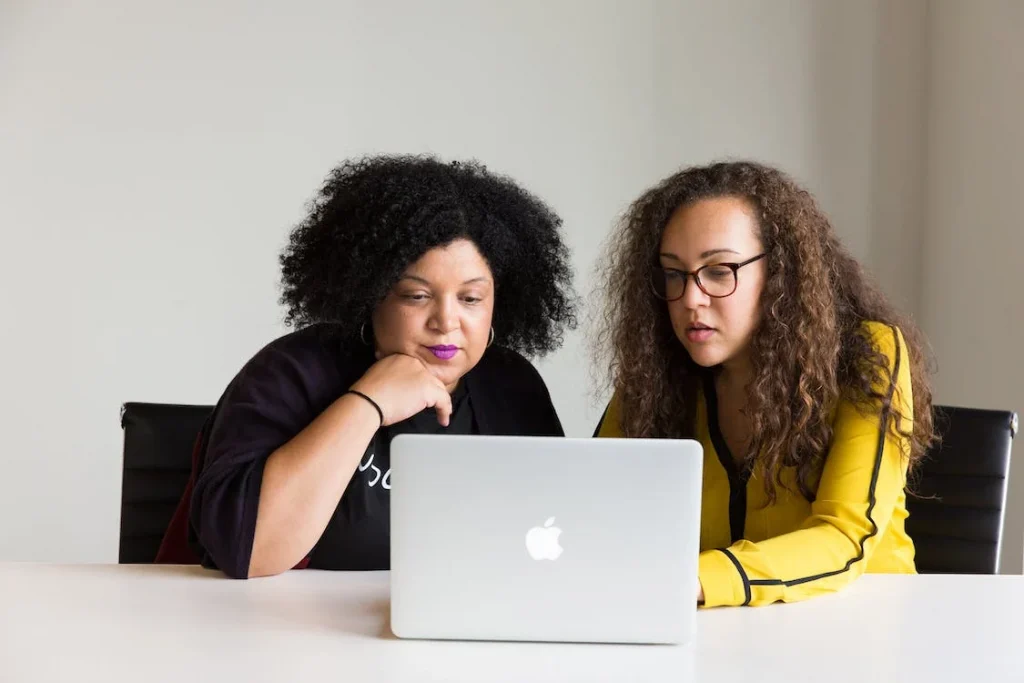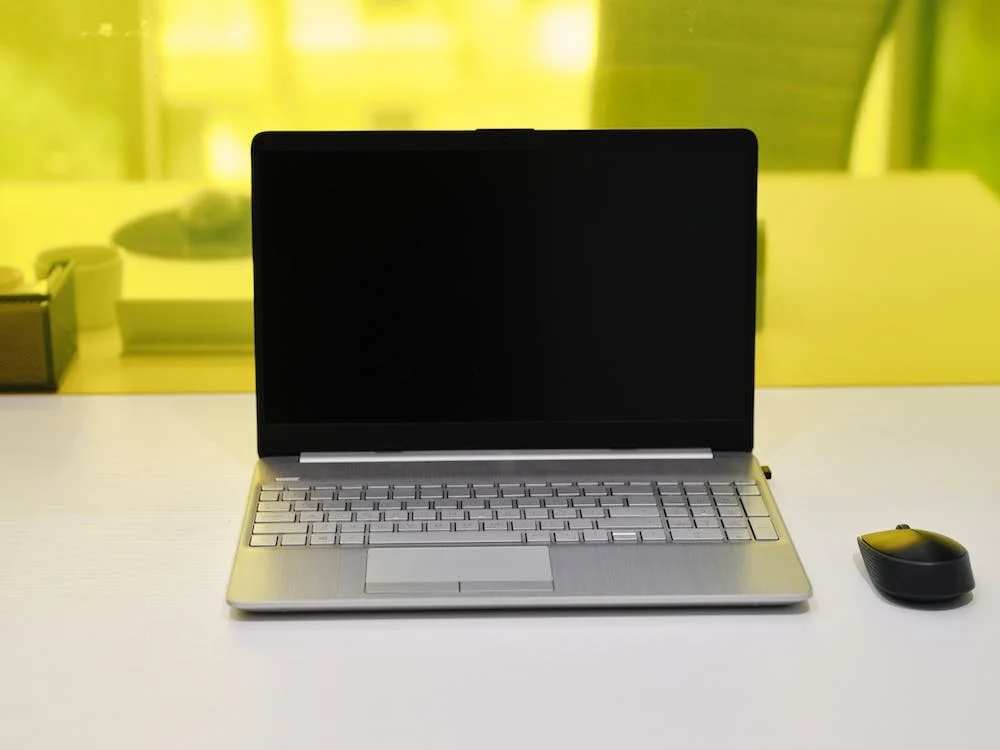Exploring the job market can be daunting, but a well-prepared cover letter is your secret to unlocking interview doors. This guide provides practical strategies to make your application stand out, ensuring your skills and experiences are highlighted uniquely. Learn to express your professional story, even when facing career gaps, and end with confidence. From internships to roles requiring extensive expertise, we provide tailored examples to improve your cover letter’s impact. Dive in and transform your cover letter into a powerful introduction to your future employer.
Understanding cover letters: Definition and purpose
A cover letter is an essential element when applying for jobs. It serves as a brief introduction to your skills and professional experience. Typically, a cover letter is about a page long, structured in a format that includes:
- Educational background. Highlighting your relevant academic achievements.
- Work experience. Detailing your previous roles and how they prepare you for the position you’re applying for.
- Qualifications. Demonstrating how your skills and experiences unite with the job requirements.
This document is more than just a formality; it’s your chance to make a strong first impression on the hiring manager. By effectively showcasing your strengths and experiences, a well-prepared cover letter can significantly influence the hiring decision. The ultimate goal of a cover letter is to turn a potential rejection into an opportunity for an interview, which is, after all, what every job seeker aims for.
The importance of a cover letter
Having outlined what a cover letter is and its primary functions, let’s delve into why it’s a necessary component of your job application. The significance of a cover letter can be elucidated through several key aspects:
- First communication with the hiring manager. It’s your initial opportunity to speak directly to the person responsible for hiring, offering context and personality beyond what your CV provides.
- Personal expression. A cover letter allows you to explain in your own words why you’re the ideal candidate for the job.
- Making a powerful first impression. This is your chance to stand out by highlighting the most relevant experiences and skills and your enthusiasm for the role and the company.
- Addressing CV nuances. The cover letter gives you space to explain parts of your CV that might need context, like employment gaps or career shifts, in a positive light.
- Powerful in a competitive market. In a job market where competition is intense, a personalized and well-thought-out cover letter can be what sets you apart and secures that all-important interview.

Essential tips for preparing an effective cover letter
Writing a compelling cover letter can sometimes feel challenging, but it’s a vital part of your job application. To simplify this process and increase your chances of making a strong impression, here are essential guidelines and strategies:
- Use a professional format. Opt for a formal business letter layout. Use templates from text programs like Word or Pages for a super start. However, if the company culture is more relaxed, feel free to adopt a creative tone in your cover letter.
- Research the company thoroughly. Understand its values and mission, and in your cover letter, reflect on how they unite with your principles. This demonstrates your genuine interest in both the company and the role you’re applying for.
- Tailor to the job. Customize your cover letter for each job application. Highlight specific skills and experiences that unite with the job description. If the job is remote, highlight your ability to work effectively from home.
- Introduce yourself effectively. In the opening paragraph, briefly mention who you are, your interest in the position, and your relevant skill set. Avoid including information that’s already in your CV, like your birthdate.
- Highlight relevant experiences and skills. Demonstrate how your skills and experiences will benefit the new role and the company. Provide specific examples rather than making general statements.
- Incorporate actionable results. Include clear, specific examples of your past achievements in the cover letter to show concrete proof of your skills.
- Be concise and clear. Use short paragraphs and bullet points, especially for highlighting key skills and experiences. This makes it easier for recruiters to look through your application.
- Address employment gaps honestly. Briefly explain any significant gaps in your employment history. Honesty can be appreciated and shows your integrity.
- Apply even if not fully qualified. If you don’t meet every single qualification, it’s still worth applying. Highlight how your skills could be beneficial in the role.
- Exude enthusiasm. Show your genuine excitement for the role and the company. This can make a notable difference in how your application is perceived.
- Accurate proofreading. Ensure there are no spelling or grammatical errors in your cover letter. Consider using our platform for precise proofreading assistance.
- Use an active voice. Writing in an active voice demonstrates confidence in your abilities and yourself.
- Avoid redundancy with your CV. Don’t repeat what’s already in your CV. Use your cover letter to elaborate on specific aspects of your work or academic background.
Remember, a well-prepared cover letter can be your ticket to landing an interview. It’s not just about listing your qualifications; it’s about telling your story in a way that resonates with the employer and sets you apart from other candidates.
Concluding a cover letter effectively
After covering the key strategies for preparing the main body of your cover letter, it’s equally important to understand how to effectively conclude it. The closing of your cover letter is your final opportunity to make a strong impression, and here’s how you can ensure it’s impactful:
- Express confidence. Demonstrate your suitability for the role by summarizing why you are an ideal candidate. This shows your fit and enthusiasm for the position.
- Gratitude. Always include a note of thanks to acknowledge the time and consideration given to your application. This demonstrates professionalism and respect.
- Professional closing. Use formal and respectful closings. Recommended options include “Kind regards,” “Best regards,” “Sincerely,” or “Respectfully.” These give a professional tone and are appropriate for a business context.
- Avoid informal language. Steer clear of casual sign-offs like “Thanks,” “Cheers,” “Take care,” or “Bye.” Also, avoid using emojis or overly familiar language, as these can damage the professional tone of your letter.
- Attention to detail. Given that the conclusion of your cover letter is one of its most critical parts, extra care should be taken to guarantee it is appropriate and free of errors. This attention to detail can set your application apart and make a significant difference.
Your cover letter’s closing should reflect the professional tone set throughout the document. It’s not just a formality but an opportunity to support your interest and leave a memorable impression.
Example of the cover letter
Having explored essential strategies for preparing an effective cover letter, it’s now time to put these guidelines into practice. Remember, the following cover letter example is a template to inspire and guide you. Your cover letter should be individually tailored to each application, reflecting the unique requirements and expectations of each role. Here is a sample cover letter to demonstrate how you can apply the tips we’ve discussed to create a compelling and personalized application:
| [Your full name] [Your street address] [City, state, zip code] [Your email address] [Your phone number] [Current date] [Employer’s full name or hiring manager’s name if known] [Company’s name] [Company’s street address] [City, state, zip code] Dear [Employer’s full name or hiring manager’s title], I am reaching out to express my genuine interest in the [Position title] role advertised by [Company name]. This opportunity caught my eye through an insightful discussion with [Contact name], a colleague in the [Industry Type], who holds your organization in high esteem. During my tenure at [Previous company], I amassed considerable experience in [Skill or area of expertise], which has prepared me to take on the challenges associated with the [Position title] at [Company name]. My professional journey thus far has been marked by [Key achievement or milestone], and I am excited about the prospect of bringing my expertise to your esteemed team. I find [Company name]’s [Aspect of the company you admire, such as its innovative approach or community involvement] particularly compelling. It aligns with my personal values and professional goals, and I am enthusiastic about the chance to contribute to such initiatives. The role of [Position title] is particularly appealing because it aligns with my skills in [Specific skill or experience], and I am eager to apply these in a context that promotes [Company value or aspect you admire]. With my background in [Specific field or industry], I am confident in my capacity to take on the responsibilities associated with the [Position title] and contribute to [Company name]’s goals and objectives. I am particularly excited about the opportunity for continuous personal and professional development within the dynamic environment that [Company name] fosters. Please find my resume attached for your consideration. I am looking forward to the possibility of discussing how my background, skills, and enthusiasm can be in line with the exciting opportunities at [Company name]. I plan to follow up next week to confirm you have received my application and to inquire about the possibility of discussing it in further detail. Thank you for considering my application. I am very much looking forward to the opportunity to speak with you and am available at your earliest convenience. Sincerely, [Your full name] |
This example serves as a practical application of the earlier tips, showing how you can seamlessly integrate professional formatting, company research, personal introduction, and relevant skill highlighting into your cover letter. It’s not just about meeting the qualifications but also about presenting your unique story in a way that resonates with the employer and differentiates you from other candidates.

Cover letter for an internship
Now that we’ve covered the essentials of writing an effective cover letter for a job, let’s turn our attention to internship applications. Creating a cover letter for an internship shares many similarities with job applications, but there are a few unique elements to consider:
- State your purpose. Clearly articulate your motivation for pursuing the internship. Whether it’s to improve your educational experience, apply your academic knowledge in a practical setting, or achieve hands-on experience in your field of study, your purpose should align with the goals of the internship.
- Leverage your education. Use your academic background to your advantage. Describe how your coursework and academic projects make you a fitting candidate, and connect your studies directly to the responsibilities and learning opportunities of the internship.
- Use connections. If you’ve learned about the internship through a network connection or a contact within the company, be sure to mention this. It can add a personal touch and show your proactive approach in seeking out the opportunity.
- Get recommendations. For those without extensive work experience, a recommendation letter from an academic mentor or professor can significantly strengthen your application. It provides a testament to your character and academic competence.
- Additional tips.
- Display your enthusiasm for the field and the specific company.
- Include any relevant extracurricular activities or volunteer work that demonstrates your interest and ambition.
- Be clear about your availability and the commitment you can make to the internship duration.
Example of a cover letter for an Internship
As we move from writing cover letters for jobs to internships, it’s key to highlight your academic insights, eagerness to learn, and alignment with the internship’s goals. Internship cover letters focus more on educational achievements and potential rather than extensive work experience. Let’s look at a concise example to illustrate how you can effectively present yourself as a promising intern candidate:
| [Your full name] [Your street address] [City, state, zip code] [Your email address] [Your phone number] [Current date] [Employer’s full name or hiring manager’s name if known] [Company’s name] [Company’s street address] [City, state, zip code] Dear [Employer’s full name or hiring manager’s title], I am writing to express my keen interest in the [Internship title] position at [Company name], as advertised [Where you found the internship listing]. My academic background in [Your major or field of study], coupled with my passion for [specific aspect of the industry or field], aligns perfectly with the internship’s objectives. Currently, as a student at [Your school or university], I am immersed in [Relevant courses or projects], which have equipped me with [specific skills or knowledge relevant to the internship]. For instance, [mention a particular project or achievement], where I [describe what you did and what skills it demonstrates that are relevant to the internship]. I learned about this exciting opportunity through [Contact name or how you found out about the internship], and I am enthusiastic about the chance to bring my [specific skill or attribute] to your esteemed team at [Company name]. I am particularly drawn to [Something specific you admire about the company or its work], and I am eager to contribute to such initiatives. In addition to my academic achievements, I have been actively involved in [Relevant extracurricular activities or volunteer work], which have honed my skills in [relevant skills or areas]. These experiences have not only deepened my knowledge in [relevant field] but have also enhanced my [soft skills like teamwork, communication, etc.]. Enclosed is my resume, which provides further details about my qualifications. I am very excited about the possibility of joining [Company name] and contributing to [specific project or aspect of the company’s work] during the internship. I am available for an interview at your earliest convenience and can be reached at [Your phone number] or via email at [Your email address]. Thank you very much for considering my application. I look forward to the possibility of contributing to [Company name] and am eager to discuss how my background, education, and enthusiasm align with the unique opportunities that the [Internship title] position offers. Sincerely, [Your full name] |
Preparing a cover letter when you lack experience
A common hurdle for many in the job market is preparing a compelling cover letter when lacking direct experience in the field. This scenario, though challenging, is far from a deal-breaker. It’s an opportunity to highlight other valuable aspects of your profile.
- Highlight education and coursework. Your academic background can be a treasure trove of relevant skills and knowledge. Detail the nature of your studies, focusing on how your coursework aligns with the job’s requirements.
- Showcase developed skills. Reflect on the skills you’ve honed recently, whether through formal education, personal projects, or other activities. These can range from technical abilities to soft skills like communication and problem-solving.
- Highlight extracurricular activities. If you’ve been involved in activities like sports coaching, community service, or other volunteer roles, these experiences can demonstrate leadership, dedication, and teamwork.
- Leverage personal passions. Your hobbies and interests can be a window into your personality and work ethic. Show how these passions have helped you develop skills relevant to the job.
- Express your motivation. Clearly convey why you’re interested in this particular job. Discuss your aspirations and what you hope to gain from the experience.
A cover letter isn’t just an extension of your CV; it’s a place to tell your story and showcase your potential. Writing from a position of authenticity and confidence can make your application stand out, even without extensive experience.
Example of a cover letter for candidates with no experience
Here is an example cover letter tailored for individuals entering the job market without direct experience. This template demonstrates how to effectively use your academic background, skills, extracurricular activities, and personal interests to create a compelling narrative that highlights your potential and suitability for the role:
| [Your full name] [Your address] [City, state, zip code] [Your email address] [Your phone number] [Current date] [Employer’s name or hiring manager’s title] [Company’s name] [Company’s address] [City, state, zip code] Dear [Employer’s name or hiring manager’s title], I am writing to express my enthusiastic interest in the [Position title] at [Company name], as advertised [where you found the job listing]. Although I am at the early stages of my professional journey, my recent academic pursuits and extracurricular engagements have equipped me with a solid foundation in [relevant skills or knowledge areas], which I am eager to apply in a practical environment. As a recent graduate of [Your school/university], my academic experience in [Your major/field of study] has provided me with essential knowledge in [relevant subjects or skills]. Courses such as [Course names] have not only deepened my understanding but also allowed me to develop [specific skills relevant to the job]. Beyond academics, I have actively participated in [Extracurricular activities or volunteer work], where I honed my abilities in [skills developed through these activities]. For instance, my role as [Specific role in activity or volunteer work] taught me valuable lessons in teamwork, leadership, and [other relevant skills]. My personal interests in [Your hobbies or interests], while seemingly unrelated to the professional sphere, have cultivated my skills in [relevant skills gained through hobbies], which are directly applicable to the role of [Position title]. I am particularly drawn to [Company name] due to [something you admire about the company or its work]. This role excites me as it aligns with my passion for [specific aspect of the field or job] and presents an ideal opportunity for me to grow and contribute meaningfully. Enclosed is my CV for your review. I am eager to bring my enthusiasm and nascent skills to [Company name] and am excited about the prospect of contributing to [specific projects or aspects of the company’s work]. I am available for an interview at your convenience and can be reached at [Your phone number] or [Your email address]. Thank you for considering my application. I look forward to the opportunity to further discuss how I can contribute to the dynamic team at [Company name]. Sincerely, [Your full name] |

Common cover letter mistakes to avoid
As we wrap up our comprehensive guide, let’s focus on strategic pitfalls to steer clear of when preparing your cover letter. Avoiding these broader mistakes is key to ensuring your application resonates effectively with potential employers:
- Lack of research and insight. Beyond avoiding generic statements, ensure your cover letter demonstrates a deep understanding of the company’s goals and challenges. Show that you’ve done more than external-level research.
- Overlooking the cover letter’s strategic role. Remember, a cover letter is not just a summary of your CV. It’s a strategic tool to create a narrative that positions you as a uniquely suitable candidate for the role.
- Not aligning with the company’s culture. It’s necessary to understand and reflect the company’s culture in your tone and approach. This goes beyond very personalization; it’s about showing that you’re a cultural fit.
- Focusing too much on what the job offers you. While it’s important to express your enthusiasm for the role, confirm that your cover letter also focuses on what you can offer the company, not just what the job offers you.
- Not recognizing the value of a clear closing request. Conclude your cover letter with a clear call to action. Encourage the hiring manager to contact you and express your eagerness to discuss how you can contribute to the team.
By focusing on these strategic aspects, your cover letter will not only avoid common mistakes but also stand out as a thoughtful, well-researched, and compelling introduction to your professional capabilities.
Conclusion
| Mastering the art of cover letter writing is a key step in your job search journey. Creating each cover letter with clarity and passion, whether for internships or roles requiring experience, promotes it from mere formality to a strategic investment. It showcases your unique qualifications and enthusiasm effectively. By carefully following these tips, steering clear of common mistakes, and taking the chance to tell a story that connects with employers, you set yourself up as more than just an applicant – you become an engaging story ready to be shown in your next job. Remember, each cover letter you write is not just a path to an interview; it’s a step toward the career you aspire to have. |
